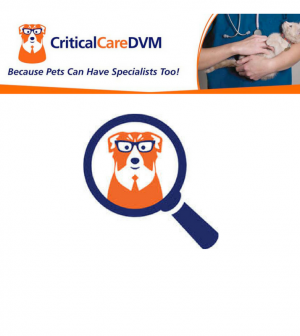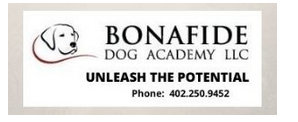- Do you subscribe to Dharma Dog Training’s Newsletter? You should.
- A Unique Campaign from The Humane Society of the United States
- Rabid bats in Omaha- Stay safe, prepared with these tips
- Springtime Activities in Omaha
- Mill Dog Monthly from Bailing Out Benji
- World Spay Day, Legislative Alert in Nebraska
- Attend the Nebraska Rescue Council’s monthly meeting this Saturday
- Five Hard-to-Ignore Reasons to Adopt!
- Paws in Pink to Benefit Breast Cancer Foundation
- VCA, Inc. Acquires MidWest Vet Specialists from Kansas State University
Google vs. Your Vet – Trust the Experts, stay sane

When my wife was pregnant with our daughter, she was nervous quite often about things. It’s understandable; the first time you experience that, you’re likely going to get a little freaked out by what your body is doing. And you’re now caring for another sentient being who will rely on you for everything for the foreseeable future.
When something would happen, like a bout of soreness somewhere or a choice was made to eat something was made, she’d undoubtedly pull out the phone and start “Googling” whatever she was feeling. And inevitably, she’d come away thinking she was going to die or the child would be born with some birth defect. In any case, our daughter is now 2 years old and healthy despite her scared mommy.
The lesson: Google searches will yield much information about everything you give it. And some of the information is scary. A lot of it is also false. A lot of it is written by people with no authority on the issue they are writing about. A lot of people are full of…beans. After all, if you’ve got a computer and internet access, you too can be a writer!
Don’t always trust your Google search results. You do, however, want to have a trustworthy veterinarian. Christopher Byers of Critical Care DVM in Omaha is a trustworthy vet and he’s written about “Dr. Google” and pet parents who come to the vet’s office armed with vast internet-curated knowledge on everything he studied to become a pet doctor. It irks him a little, but he understands why folks do it. Read about his observations and reflections on the issue below in a blog post first seen on Critical Care’s website.
Inevitably at some point during my daily consultations I will have at least one pet parent say to me, “I was reading on the Internet” or “I found some information through Google.” I won’t lie. Early in my career this use to frustrate me to no end. What could possibly motivate an animal owner to seek medical advice from a random online source rather than from a veterinarian, someone with at least eight years of higher education and obvious veterinary medical training? On some level I took their online research as a personal attack on my professional capabilities. I was insecure.
Dr. Google isn’t attacking me
I now know those initial feelings were largely unfounded. At this point in my career I have come to better understand why pet parents do online research. They’re thirsty – thirsty for knowledge – thirsty for more information about their pet’s healthcare. I know I don’t need to be defensive when pet parents come to their appointments armed with information taken from the Internet. I have come to accept animal owners look up information online in order to supplement offline sources, including reference books, published scientific articles, and friends.
I truly don’t believe mistrust is a significant reason people going online for pet health information, and studies of human patients have corroborated this belief. In my experiences, pet parents tend to seek online information if:
- They believe their pet is living with a chronic condition
- They believe they can somehow harness some control over their pet’s illness
- They are emotionally distressed by their pet’s health condition
Tips for Internet searching with Dr. Google
None of us are naïve enough to believe all information available on the Internet is created equal. Let’s be honest. There’s some pretty erroneous and biased material online. No one is in charge of the Internet. There a very few rules and regulations for online content. Anyone can build a website, and one need not have any educational or professional qualifications. You simply cannot and should not automatically trust information found online.
Be discerning! Not all information found on the Internet is accurate or true.
Below are some helpful tips for pet parents to help ensure their online searches are fruitful with accurate data:
- Look for the credentials of the author to make sure the information is written by a veterinary healthcare professional
- Be wary of commercial sites due to potential for bias and conflict of interest
- Check to see if the information is current (less than five years old)
- Be sure the information is understandable and easy to navigate
I would be negligent if I didn’t 100% encourage pet parents to openly communicate with their pet’s veterinary healthcare team. Ask questions of veterinarians and licensed veterinary technicians. Demand the information you desire. Most of us truly love educating pet parents. I personally feel working with educated pet parents makes my job easier, and as such, I’m better able to help my patients. I have truly found if all members of a pet’s healthcare team, including families, are on the same proverbial page, we have a much higher likelihood of successful outcomes.
Never forget your pet’s veterinary healthcare team is a great resource for accurate, up-to-date medical information
The take-away message about Dr. Google…
The Internet is unquestionably a mainstream source of information about health issues for both humans and animals. Many people research their own health issues. It makes sense they would do the same when dealing with health issues for their pets. Veterinarians should be prepared to spend adequate time with pet parents, educating them about their pet’s health conditions, including reviewing online information families have researched.
To find a board-certified veterinary internal medicine specialist, please visit the American College of Veterinary Internal Medicine.
To find a board-certified veterinary emergency and critical care specialist, please visit the American College of Veterinary Emergency and Critical Care.
Related Posts
Latest News
-
What Signs to Look For When My Pet Has a Cold
You have probably heard the expression, “sick as a dog.”...
- Posted 2 weeks ago
- 0
-
How Often Should I Groom My Pet?
Do you have a grooming ritual for your furry friend?...
- Posted 2 weeks ago
- 0
-
From Kibble to Cuisine: Finding the Perfect Food For Your Pet
Do you ever wonder what the difference is between regular...
- Posted 1 month ago
- 0
-
The Essential Guide to Pet Care: Meeting Your Furry Friends Basic Needs
Are you a first-time pet owner and need to know...
- Posted 1 month ago
- 0
-
Say Cheese! Tips for Keeping Your Pet’s Pearly Whites Clean
Did you know that keeping your dog or cat’s teeth...
- Posted 2 months ago
- 0
-
Feeding Frenzy: How Often Should You Fill Your Pet’s Bowl?
Are you unsure how much food to give your dog...
- Posted 2 months ago
- 0
-
How to Prepare Your Pet for Spring
Winter is in full force, but spring will be here...
- Posted 2 months ago
- 0























You must be logged in to post a comment Login